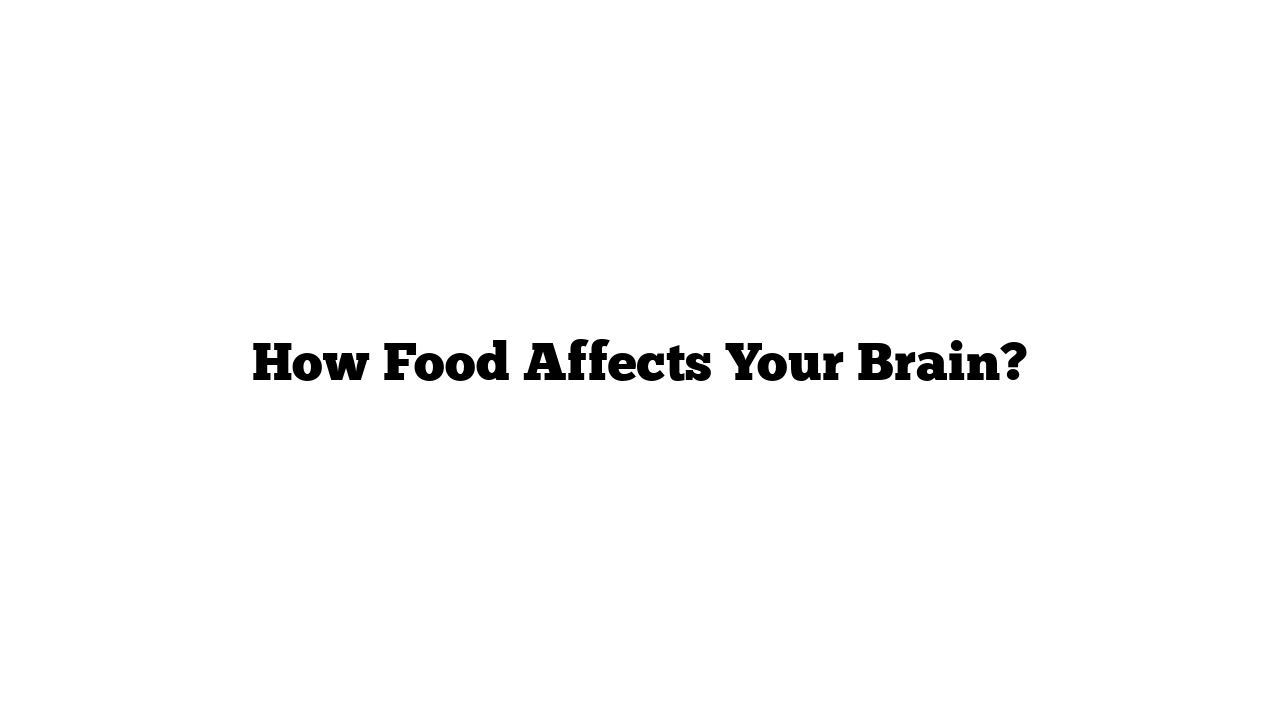Did you know that the food you eat has a big impact on your brain? Understanding how our diet influences brain function can help us make better choices for our mental health and overall well-being. Let’s explore how different nutrients affect brain health and performance.
The Nutritional Makeup of the Brain
If we could remove all the moisture from our brains and look at the nutrients left, we’d find a mix of fats, proteins, amino acids, vitamins, and glucose.
- Fats: The brain is mostly made up of fats, especially omega-3 and omega-6 fatty acids. These are essential fats that we must get from our diet. Foods like nuts, seeds, and fatty fish are great sources. They help maintain cell membranes and support brain health.
- Proteins and Amino Acids: Proteins are made up of amino acids. These are important for growth and development and help regulate our mood and behavior. They are the building blocks for neurotransmitters, which are chemicals that carry messages between brain cells. For instance, eating a protein-rich meal can make you feel more alert, while carbs might make you feel relaxed.
- Micronutrients: Our brains also need vitamins and minerals to function well. Antioxidants found in fruits and vegetables protect brain cells from damage. Essential vitamins like B6, B12, and folic acid, along with minerals such as iron, copper, and zinc, are crucial for brain health and cognitive development.
Energy: Fueling Your Brain
Your brain may only weigh about 2% of your body, but it uses up to 20% of your energy! Most of this energy comes from carbohydrates, which our bodies break down into glucose (blood sugar).
The Importance of Glucose
The frontal lobes of our brain are sensitive to changes in glucose levels. A drop in glucose can lead to poor concentration and mood swings. This is why it’s essential to provide your brain with a steady supply of glucose through your diet.
Carbohydrates: The Good, The Bad, and The Ugly
Carbohydrates come in three forms: starch, sugar, and fiber. While nutrition labels combine these into a total carb count, the type of carbs you eat can greatly influence your brain’s performance.
- High Glycemic Foods: Foods like white bread cause a quick spike in blood sugar, followed by a rapid drop. This can lead to feelings of tiredness and difficulty focusing.
- Low Glycemic Foods: Foods like oats, grains, and legumes release glucose slowly. This results in more stable blood sugar levels, helping you stay alert and focused longer.
A Balanced Diet for Brain Health
To keep your brain working at its best, it’s important to eat a variety of nutrient-rich foods. A balanced diet not only helps maintain cognitive function but also keeps your mood stable.
Making Smart Food Choices
Your choices at mealtime have a lasting effect on your brain’s health and performance. Here are some tips to keep your brain happy:
- Include Omega-Rich Foods: Add fatty fish, nuts, and seeds to your meals.
- Choose Whole Grains: Opt for whole-grain bread, oats, and legumes for a steady supply of energy.
- Eat Colorfully: Fill your plate with a variety of fruits and vegetables for essential vitamins and antioxidants.
- Stay Hydrated: Don’t forget to drink enough water; hydration is key for optimal brain function.
In summary, the food you eat plays a crucial role in how your brain functions. By choosing a balanced diet, you can enhance your cognitive abilities and improve your mood, leading to a healthier and happier life. Your brain will thank you for it!
